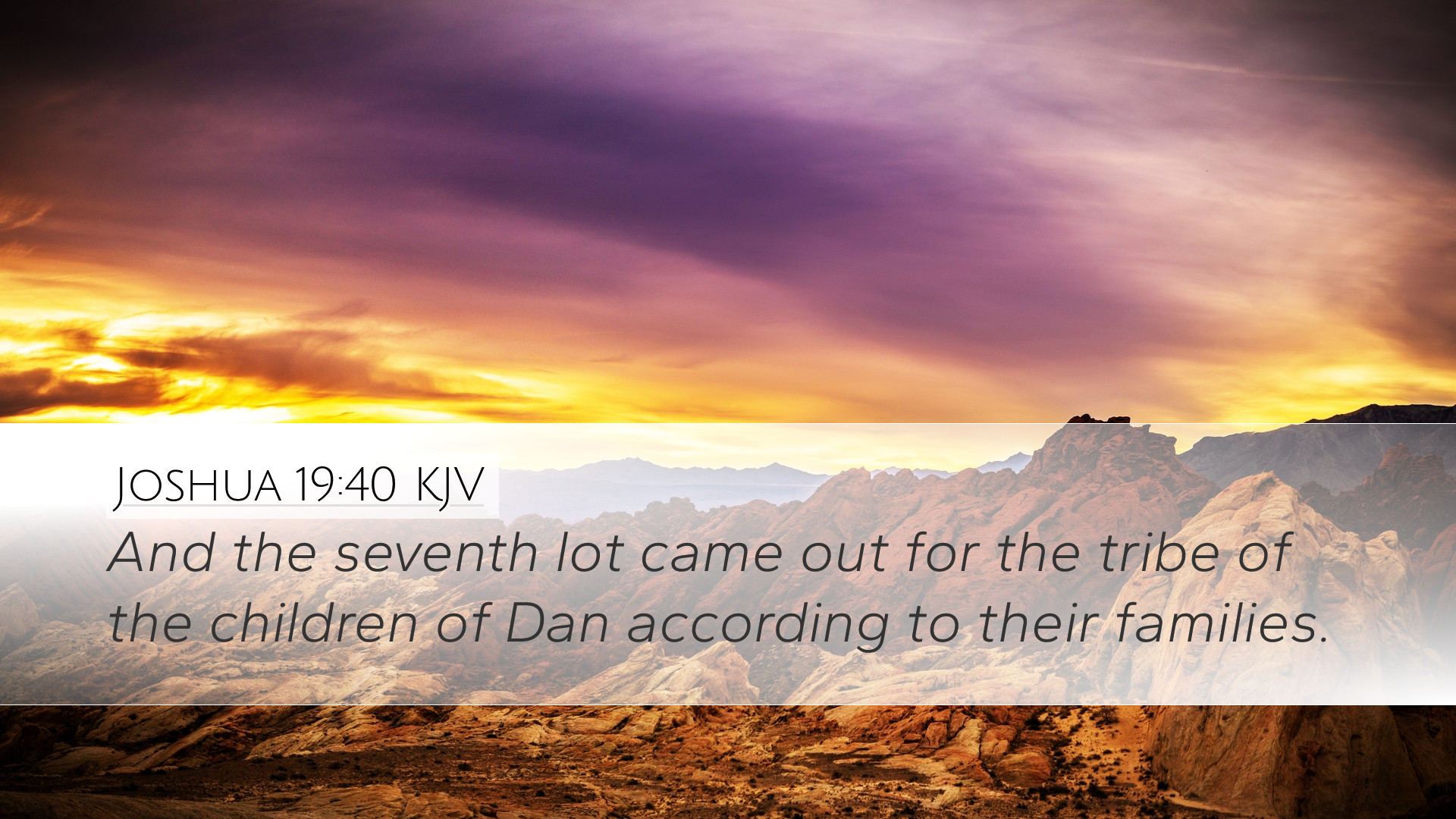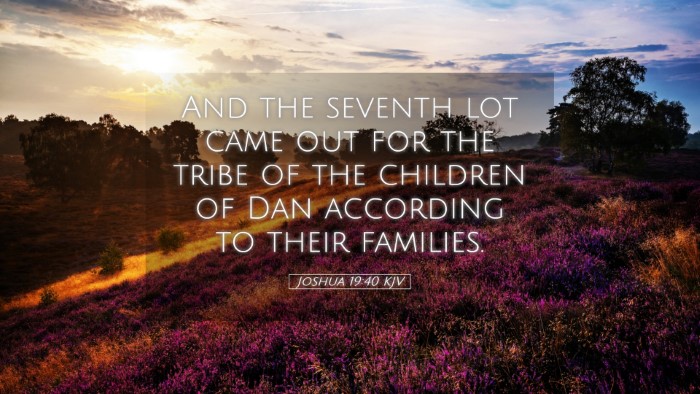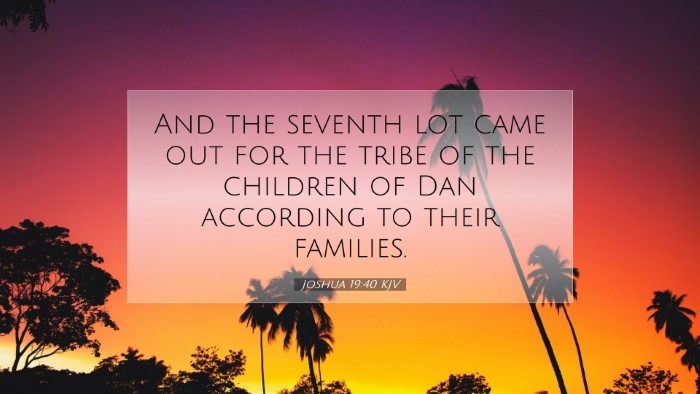Commentary on Joshua 19:40
Joshua 19:40 states: "The seventh lot came out for the tribe of Dan according to its clans." This verse comes in the midst of the partition of the land of Canaan among the tribes of Israel, illustrating the manner in which God's promises were fulfilled through divinely ordained allotments. In this commentary, we will delve into insights from notable public domain scholars such as Matthew Henry, Albert Barnes, and Adam Clarke, providing a meaningful reflection suitable for pastors, students, theologians, and Bible scholars.
Historical Context
In analyzing this verse, it is vital to understand the historical context of the Israelite's division of the Promised Land. After the conquest of Canaan, Joshua, having led the Israelites into the land, was tasked with the responsibility of allotting territories to each tribe, as commanded by God. This moment was significant, marking the fulfillment of God's promises to the patriarchs about the land that their descendants would inherit.
The Tribe of Dan
The mention of the tribe of Dan is particularly poignant. As noted by Matthew Henry, the tribe of Dan initially struggled to secure its own territory, facing opposition from the Amorites who inhabited the plains. This struggle highlights a larger theme in the narration of the Israelite conquests: the struggle of faith amidst adversity.
Albert Barnes elaborates on the circumstance of Dan’s inheritance by connecting it to a broader identity crisis the tribe faced. While Dan was expected to be a fruitful and significant tribe, its territory was limited, leading the Danites to seek further conquests in the northern regions, eventually establishing their own city, Dan, named after their patriarch.
Divine Providence
The phrase "according to its clans" reflects the meticulous nature of God's provision. Adam Clarke emphasizes that the manner of the casting of lots was not arbitrary but rather a divine process, ensuring that each tribe received what was justly theirs according to God’s perfect will. This method underscores the notion that God's providence governs every aspect of life, including the distribution of blessings among His people.
The Importance of Unity and Identity
The fragmentation of the land among tribes also brings a lesson in unity and identity for believers today. Each tribe had its own distinct identity, yet they were all part of one nation—a concept that resonates deeply with the church today. Just as the Israelites were given specific inheritances, the church today is called to understand and embrace its unity in diversity.
- Unity in Purpose: Just as all tribes contributed to the overall mission of Israel, churches today must work collectively toward the great commission.
- Individual Giftings: Each tribal inheritance speaks to the unique calling and gifting present within the body of Christ, promoting a healthy interplay of collaboration and support.
Theological Implications
The allotment of Dan's territory is significant in understanding the theological implications of God's promise. Matthew Henry points out that this physical inheritance is a type of the spiritual inheritance believers have in Christ. Just as each tribe received its assigned land, Christians are assured of their inheritance in the Kingdom of God as described in Ephesians 1:11.
Barnes further highlights that the very act of 'casting lots' serves as a reminder of divine sovereignty in the distribution of grace and resources. This theological concept reinforces that believers should not view life’s circumstances as merely random occurrences but as part of God’s sovereign will working out for good.
Life Application
There are practical applications of the insights gained from Joshua 19:40. For pastors, students, and scholars, understanding the dynamics of inheritance can lead to insightful communion with congregations or academic discourses on the nature of God’s provision and leadership.
- Trust in God's Plan: Like the Israelites, believers today may find themselves in difficult circumstances, yet they are reminded of God's overarching plan and provision.
- Embrace Community: The importance of communal unity cannot be overstated. Just as Joshua was not working alone in dividing the land, leaders today are called to cooperate with others in ministry.
- Seek God’s Guidance: The act of casting lots represents an earnest seeking of God’s will, highlighting the importance of prayer and discernment in decision-making.
Conclusion
In conclusion, Joshua 19:40 serves not merely as a historical record but as a rich source of theological and life lessons for the faithful today. With insights from Matthew Henry, Albert Barnes, and Adam Clarke, we can appreciate the layered meanings present in the text. The division of land among the tribes of Israel, particularly the tribe of Dan, echoes principles of divine providence, community identity, and the promise of inheritance that transcend time and culture.


